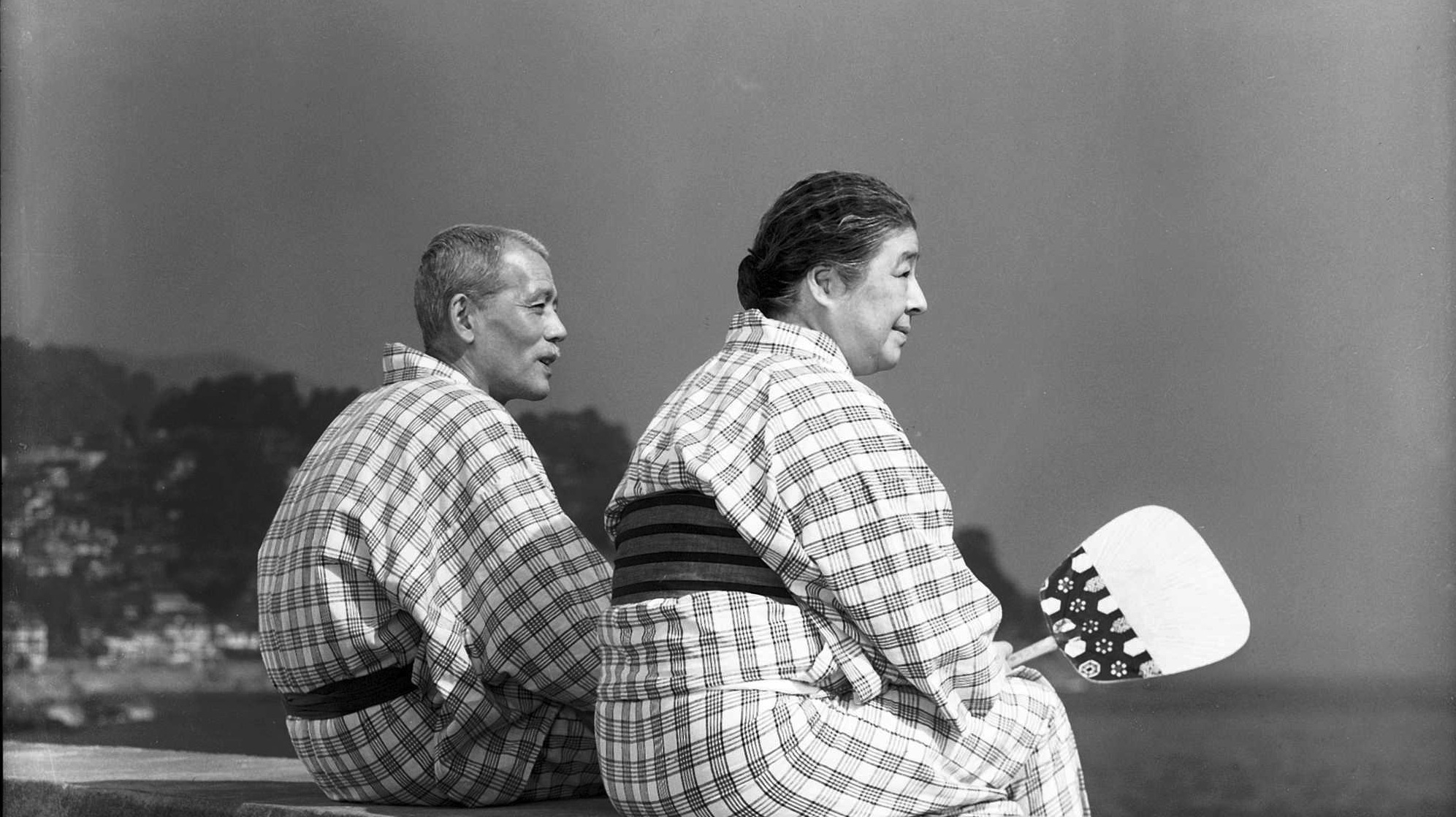
MPAA Rating: NR | Rating: ★★★½
Release year: 1953
Genre: Drama, Family, Foreign Director: Yasujirō Ozu
Having read so much about filmmaker Yasujiro Ozu in various books, essays, and reviews, I am thankful to have finally seen one of his films. His family drama Tokyo Story is the work of a disciplined, meticulous craftsman. Leisurely paced and painterly in its framing, Tokyo Story eases the viewer into its seemingly mundane world of interiors. The sparse story centers on an elderly couple from a small village visiting their children in the urban center of Tokyo. Most of the children seem annoyed by their parents’ presence, too busy to give them adequate time or attention. Only their deceased son’s widow, Noriko, offers them true hospitality, inviting them into her small home with an over-eager smile on her face. Her smile may serve as a mask for the pain inside her as she continues to grieve the loss of her husband. His death is never explained, but as it happened “eight years ago,” her grief may serve as a picture of the weightiness on all of post-war Japan living in the aftermath of Hiroshima and Nagasaki.
Ozu utilizes mainly static camera shots, set at mid- or low-level positions, causing us to look at characters from a limited range of angles. He frames these characters in perfect synchronicity with one another and their environment, using doorframes, windows, hallways, and other parts of the Japanese architecture to emphasize the intentionality within the mise en scene. With dialogue, Ozu tends to jump between the speaking characters, showing the person talking rather than the person reacting, using 180 degree cuts rather than a traditional reverse-shot or over-the-shoulder point of view. Characters overtly tell us what they’re thinking and feeling, bringing the internal into the exterior world. This gives the entire film a sense of rich premeditation—we are seeing exactly what Ozu planned for us to see.
“Isn’t life disappointing?” one character asks another. “Yes, yes it is” comes the disheartening reply. The word “disappointing” may also be translated as “depressing,” and such is Ozu’s take on familial life, generational tensions, and the culture clash of East and West. The biggest moment of levity is the elderly mother exclaiming, “What a treat to sleep in my dead son’s bed!” In short, this is a somber, sobering film. The self-centered adult children remain mostly selfish, even after a terrible tragedy within the family. The humble and compassionate Noriko even admits to her sister-in-law that she, too, will likely become self-serving one day; it is inevitable as death.
Tokyo Story is widely lauded as Ozu’s greatest work, as well as one of the best films of all time. While I can understand and appreciate its distinct and well-crafted formal elements, its source material tells a much more affecting story: Ozu and fellow screenwriter Kogo Noda were inspired by Leo McCarey’s 1937 film Make Way for Tomorrow, a film which better earns its tears despite not sharing quite the same stylistic nuance. The pre-war Western film moved me more than the post-war Japanese film, yet both are worth considering for their depictions of marriage, family drama, and the regrets we carry with us through the passing of time.
IMDB Listing: www.imdb.com/title/tt0046438/
Leave a Reply